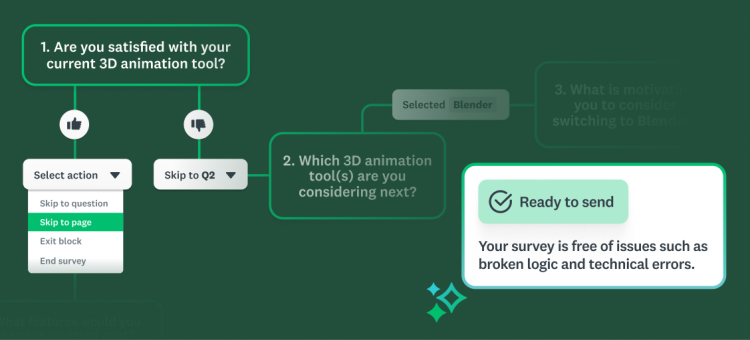Millennials come in to work late. Millennials demand to work from home. Millennials leave the office early for personal reasons.
You probably recognize these stereotypes—you might even believe them. But is it fair to call this generation of employees lazy?
Based on the results from a study run by Wrike, which surveyed more than 1,100 American employees on SurveyMonkey Audience, millennial employees are quite the opposite. They overwhelm themselves with work and de-prioritize rest.
So what’s keeping millennials so attached to their jobs? And what can employers do to help them relax and recharge?
Here’s what millennials had to say (during their short break from work).
What are you curious about?
Use SurveyMonkey Audience to test ideas with your target market.
Millennials don't take time off, even if they’re away
Youthful energy, the “travel bug,” and an opportunity to explore aren’t enough to convince millennials to take full advantage of their vacation policies.
More than half (55%) of millennials rarely use all of their allotted annual vacation time, and only 24% take a vacation that’s two weeks or longer. To make matters worse, work stays top of mind even when they manage to take time off, preventing them from using the time to rest.
Nearly half (42%) of millennials work or make themselves available to employers during their vacations—14 percentage points more than Gen X and baby boomer employees.
So what’s stopping millennials from fully embracing their time off?
1. The feeling that they shouldn’t take vacation in the first place. Even though millennials often take less vacation than they’re allowed, roughly 40% admit to having felt guilty about the amount of time they do take off. Baby boomers and Gen X employees, on the other hand, are willing to vacation with less self-disapproval. Both generations take a higher share of their allotted time off and are 38% less likely to feel guilty about it.
2. Following the way their managers spend vacation. Roughly 45% of millennials are more willing to work on vacation if their manager does; while baby boomers and Gen X employees are 12 percentage points less likely to mirror their managers’ work-related vacation habits.
Overworking doesn’t work
So is taking less time off and working on vacation improving millennials’ performance?
It’s unlikely.
It’s been proven that overworking worsens an employee’s critical thinking skills and memory.
Equally important, overworking has a lasting impact on the employee’s physical and mental health. Research shows that it can lead an employee to drink more, sleep less, get depressed, and even become susceptible to heart disease.
For employers, the consequences of having employees overextending themselves are also potentially disastrous. Employees can burn out and leave their job, or lessen their level of engagement; which both hurts their performance and influences a lower level of profitability for the organization over time.
Related: Tips for keeping your best employees.
How to help employees unplug
To help millennials—and all of your employees—feel empowered to take better, more frequent vacations, consider these tips:
- Have leaders set the right example. If management can take vacations where they disconnect completely, employees will feel more comfortable following suit.
Pro tip: Surveys are a great way to collect feedback from employees. They’re easy to take and can be answered anonymously. Check out our employee survey templates to help you design your own.
If you already use surveys but want to take a more comprehensive approach to managing and improving the employee experience, our custom-built solution, SurveyMonkey Engage, can help automate that process.
- Promote employees’ travel experiences. Did an employee take an exciting vacation? Ask them to share their experience to the team via email. You can go so far as highlight some of the employees’ vacations during a team or company-wide meeting. Over time, this can help normalize vacations as a way for employees to simply go out and have fun.
Employers have a major role to play in helping their employees take time off. And they should be motivated to do so. It not only benefits employees’ productivity and well being but also the organization's performance.
So next time someone on your team requests time off, just ask them to bring back some pictures.
Create your own stories based on data
Our content marketing guide will teach you everything you need to know about creating content based on original research from survey data.



